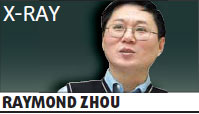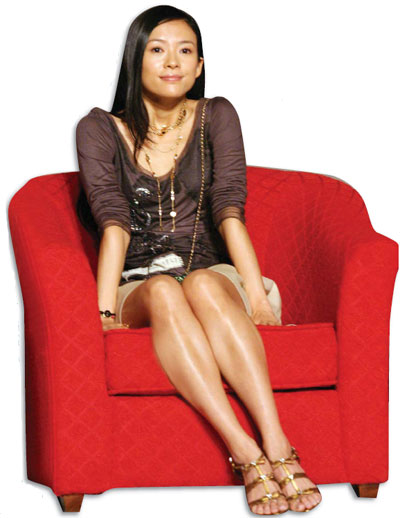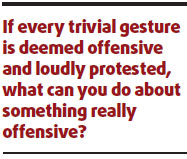 Zhang Ziyi is once again the focus of an Internet controversy.
Zhang Ziyi is once again the focus of an Internet controversy.
She is said to "have offended Chinese sensibilities" by appearing in a kneeling position in her latest movie The Horsemen. I haven't seen the movie yet, but from publicity materials, Zhang seems to play the role of a killer named Kristen. It's not clear whether Kristen is even Chinese or ethnic Chinese. But I guess such details would not bother those intent on painting the Chinese actress as "a traitor to her own country".
 |
|
Zhang Ziyi, the internationally famous actress, often draws flak from netizens for her roles that they believe offend Chinese sensibilities. Tian Chi |
In 2005, Zhang starred in another Hollywood production, Memoirs of a Geisha, in which she played a geisha who sleeps with a client, played by a Japanese actor. A lot of egos were bruised in China, which gathered enough momentum to have the movie banned in her motherland.
According to one Internet posting, Zhang's "sins" are numerous. In a Sino-South Korean co-production called Sophie's Revenge, which is now in post-production, Zhang complimented her co-star but he supposedly bad-mouthed China. By extension, Zhang has been found guilty as well.
In a series of publicity shots a few years ago, Zhang wore a gown that revealed the upper part of her back. The photos were plastered all over Tokyo, which some netizens reckoned "debased the Chinese race".
She also appeared in a shampoo commercial in Japan but turned down a similar product endorsement deal in China because "the money is too little". Very "unpatriotic", claimed some.
In 2007, she appeared on the cover of Brio, a Japanese magazine, looking buddy-buddy with a Japanese man. In 2006, she was featured on the cover of the Japanese edition of Playboy. Though alone, she obviously played to Japanese male fantasy.
What should these "seven deadly sins" get her? I will not quote the online suggestions. Suffice it to say, it's not pretty. Sometimes I have the feeling that Zhang gets her hefty fees not for her performances, but for all the mud thrown at her. She is as quickly deemed here a symbol of a hundred years of Chinese humiliation as she is seen as the archetypal Chinese porcelain doll in Hollywood.
Why are Chinese youths -netizens are predominantly young - so easily affronted? Moreover, when they feel displeased, they purport to represent the whole Chinese nation, not just themselves. What gave them the power to make such a bombastic claim?
Online, ultra-nationalistic postings often assume anyone who does not agree with them is "unpatriotic". They will say: "If you love your country, come read this article!" Since when has reading one specific posting out of millions become a prerequisite for loving one's country? These guys haven't even read Confucius or the 300 Tang poems, yet they still feel free to call themselves patriots.

Jingoistic rants share two common traits: They are extremist by nature and have zero tolerance for different opinions, even for those that only slightly veer from their orthodox view of political correctness. I once had a televised debate with Huang Jisu, one of the authors of China Is Not Happy. Huang basically said that all those writers who continued working during the Japanese occupation were traitors even though they may not have ingratiated themselves to the occupiers. He took out a photo of a famous martyr and said people should live up to that model. I said that martyr was, indeed, a patriotic hero but we cannot expect everyone in Japanese-occupied Shanghai to have acted like that. Moreover, I seriously doubted my opponent would himself have had that kind of courage.
